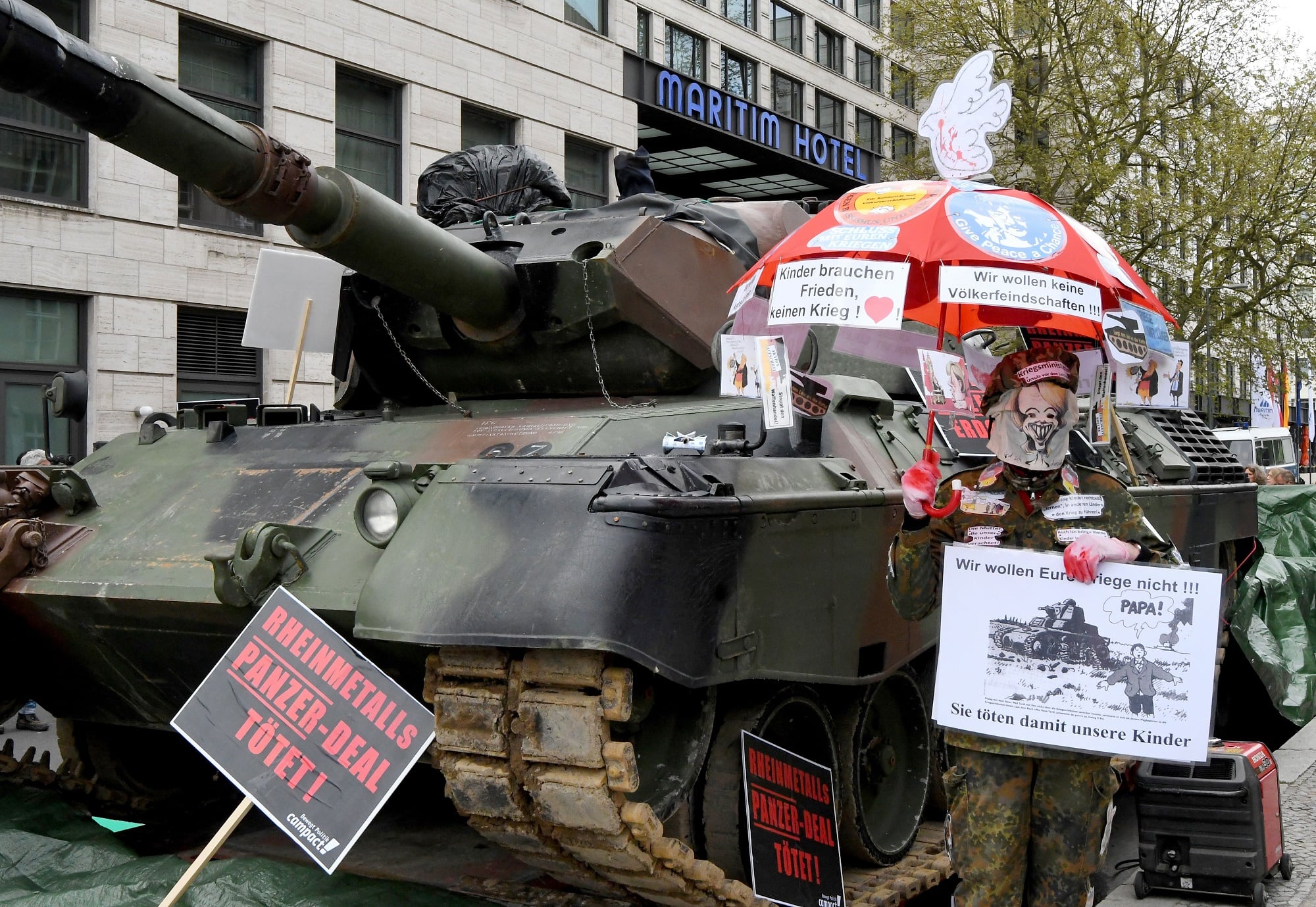ANKARA, Turkey — Turkey’s ambitious program to build the country’s first indigenous fighter jet is awaiting a critical endorsement from a supreme body chaired by President Recep Tayyip Erdogan.
Procurement officials said the meeting of the Defence Industry Executive Committee, expected to convene in the next few weeks, will produce a comprehensive briefing to Erdogan on the fighter program, dubbed TF-X.
“The briefing will be the first critical step for the program this year,” an official said. “With the president’s approval, the TF-X will gain pace.”
Click here for more coverage from the Singapore Airshow.
The TF-X and other major indigenous development programs are Erdogan’s pet projects.
A presidential adviser said Erdogan intends to order officials to give momentum to TF-X. “The president is strongly in favor of independent defense industry capabilities, including the fighter program,” the adviser said.
The planned meeting of the Defence Industry Executive Committee will be the first gathering under the chairmanship of the president. The committee, along with Turkey’s top defense companies, was tied to Erdogan under a state of emergency decree in December. Before the decree, Prime Minister Binali Yildirim acted as chairman of the committee.
The meeting will come at a time when Erdogan is increasingly suspicious of Turkey’s defense industry ties with NATO allies, most notably the United States.
Erdogan has strongly praised Turkish-made systems used in Turkey’s military incursion into neighboring Syria. These systems include locally made drones (including armed models), rockets and the T129 ATAK, a Turkish-made attack helicopter under license from the Italian-British firm AgustaWestland.
U.S.-Turkey relations have been strained over Turkey’s actions in Syria, and Turkey’s growing military and political ties with Russia are a cause of concern among its Western and NATO allies.
RELATED

Turkey launched a military incursion into Syria on Jan. 21, targeting Kurdish militia in the region. Turkey views Syrian Kurds as terrorists, whereas the U.S. considers them allies in its fight against the Islamic State group.
Turkey announced Dec. 29 a finalized deal with Russia for the acquisition of the Russian-made S-400 surface-to-air missile defense architecture. The Ankara government will pay more than $2 billion for the system. Turkey will be the first NATO member state to deploy the S-400 system on its soil.
The next critical stage after the committee meeting will be a Turkish decision to choose an engine for the TF-X. An aerospace official familiar with the TF-X program said the decision on the technology supplier for the engine could also be made at the meeting.
“Talks with a number of potential technology suppliers and their local partners have recently matured enough to give decision-makers a clear picture,” he said. “The idea is to rely on foreign technology in order to build, in the longer term, an indigenous engine that will power the TF-X. … I think we are close to an understanding.”
The TF-X program is run by the country’s procurement agency, the Undersecretariat for Defence Industries. But the decision on the engine will be made by the Defence Industry Executive Committee.
In October 2016, engine-maker Rolls-Royce offered to Turkey a joint production partnership with a view to powering planned Turkish platforms and for potential sales to third parties. The British company’s proposal involved a production unit in Turkey to manufacture engines for the TF-X, helicopters, tanks and missiles.
A year before that, in October 2015, a memorandum of understanding had been signed between Turkey and Rolls-Royce for technological know-how and a production unit. Under the plan, Rolls-Royce will launch an advanced manufacturing and technology center in Turkey ― the company’s eighth such unit worldwide.
Meanwhile, Tusas Engine Industries, or TEI, a government-controlled engine maker, is currently working to refine a 20-year road map for the design, development and manufacturing of a local aircraft engine, also with the aim of powering the TF-X. TEI is a sister company of Turkish Aerospace Industries, or TAI, the prime local contractor of the TF-X program.
Top officials from Turkey met last month with a high-profile British delegation to discuss ways to go forward with plans to design, develop and build the TF-X.
The British delegation, including International Trade Secretary Liam Fox and Rolls-Royce CEO Warren East, met Jan. 13 with Turkish Prime Minister Yildirim, chief defense procurement officer Ismail Demir, TAI’s CEO Temel Kotil and other senior Turkish officials.
In January 2017, Britain and Turkey signed a deal worth more than £100 million (U.S. $141 million) to develop the Turkish fighter jet. The deal involves TAI and BAE Systems.
Burak Ege Bekdil was the Turkey correspondent for Defense News.








